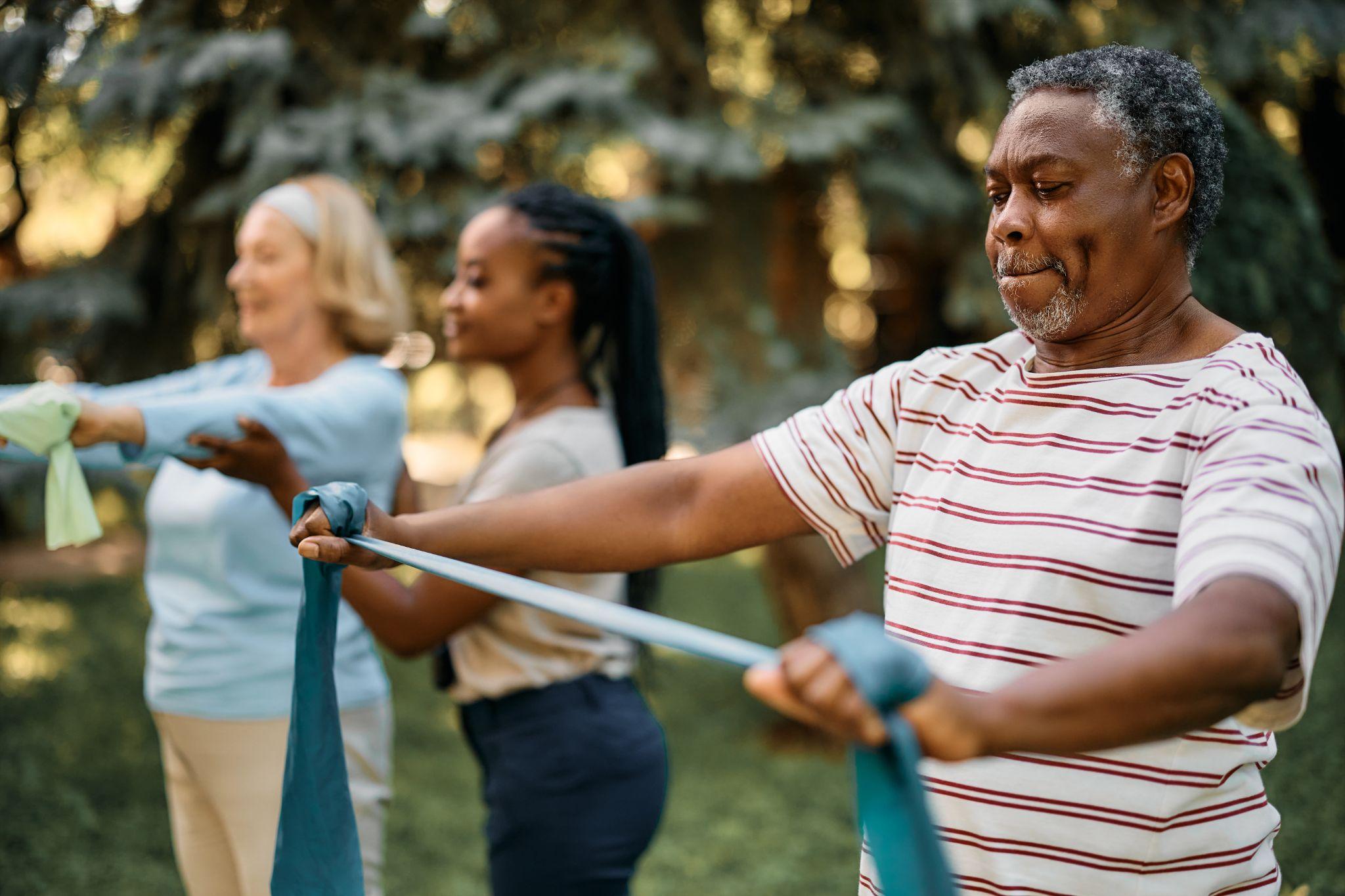The path to recovery from addiction is a brave and challenging process. It’s a journey that demands resilience, dedication, and a network of support. Beyond traditional therapies and support mechanisms, incorporating exercise into your recovery strategy can profoundly impact your well-being.
Engaging in regular exercise serves not only to bolster your physical health but also to fortify your mental and emotional resilience. There are numerous benefits that exercise can offer individuals navigating the complexities of addiction recovery.
We’ll delve into how physical activity can become an essential part of your recovery, enhancing your journey toward healing and self-discovery. Additionally, we’ll provide practical advice on integrating exercise into your routine, making it an enjoyable and sustaining part of your recovery process.
The Power of Physical Activity
Engaging in physical activity is a transformative component of addiction recovery, offering benefits that extend far beyond physical fitness. Let’s get into how regular exercise can serve as a potent tool in helping to mitigate cravings, enhance mental health, and rebuild a sense of purpose and self-confidence on the road to recovery.
Reduces Cravings and Relapse Risk
Exercise acts as a natural antidote to cravings, engaging the same neurochemical pathways that substance abuse does but in a positive way. By stimulating the release of endorphins—our body’s natural painkillers and mood elevators—exercise helps to mitigate the immediate desire for substance use.
Studies show that regular physical activity strengthens the prefrontal cortex, the brain area responsible for decision-making and impulse control, which is crucial in resisting temptations and preventing relapse.1
Establishing a routine that includes exercise can create a healthy habit, replacing the negative ones associated with substance use disorders. It’s recommended to start with moderate activities, such as brisk walking or swimming, gradually incorporating them into daily life to foster resilience against cravings.
Improves Mental Health
The link between exercise and improved mental health is well-documented. Physical activity increases the production of neurotransmitters like serotonin and dopamine, which are often deficient in people suffering from depression and anxiety. This biochemical boost helps alleviate symptoms of these disorders, which are common among individuals recovering from addiction.2
Exercise also promotes a sense of accomplishment and improves self-esteem, critical factors in mental health recovery. Yoga and tai chi, for example, combine physical activity with mindfulness, enhancing emotional balance and stress management. Starting the day with a short walk or a simple yoga routine can set a positive tone, helping to manage anxiety and depressive symptoms more effectively.
Boosts Physical Health
Addiction can severely impact physical health, leading to weight fluctuation, cardiovascular issues, and decreased immune function, among other concerns. Exercise plays a key role in rehabilitating the body by improving heart health, increasing muscle strength, enhancing flexibility, and supporting weight management.
Regular physical activity helps in detoxifying the body, improving circulation, and boosting overall energy levels. It’s important to choose a variety of activities that target different aspects of physical health.
This can include cardio exercises to increase heart rate for heart health, strength training for muscle building, and stretching routines for flexibility. Even low-impact exercises like walking or cycling can have significant health benefits, making them a good starting point for those new to exercise.
Enhances Sleep Quality
Many recovering from addiction struggle with sleep disorders, including insomnia. Exercise is a natural sleep aid, helping to regulate the body’s circadian rhythm and promote deeper, more restorative sleep.
Physical activity, especially when done in the morning or afternoon, can increase the duration of deep sleep phases, improving sleep quality. It’s also been shown to reduce the time it takes to fall asleep and decrease the likelihood of nighttime awakenings.
However, it’s advisable to avoid vigorous exercise close to bedtime, as it can energize the body and make falling asleep more difficult. Incorporating relaxing exercises like gentle yoga or stretching in the evening can help prepare the body and mind for a good night’s sleep.
Provides Structure and Purpose
For many in recovery or undergoing addiction treatment, establishing a new routine devoid of substance use can be challenging. Exercise offers a constructive way to fill time, providing structure and a sense of purpose.
Setting and achieving fitness goals can also build self-confidence and a sense of achievement, which are crucial during the recovery process. Engaging in group sports or fitness classes can add a social component, offering the opportunity to meet new people and build a supportive community.
Creating a weekly exercise schedule and setting specific, measurable goals can help maintain focus and motivation. As progress is made, these goals can be adjusted to continue challenging and rewarding the individual.

How To Get Started With Exercise
- Choose activities you enjoy. The foundation of a lasting exercise habit is enjoyment. Begin by exploring a variety of activities to discover what you truly enjoy. This might mean trying out group sports, solo exercises like running or cycling, or even dance classes.
Don’t hesitate to experiment with different settings, whether it’s the calm of nature during a hike or the energy of a group fitness class. Remember, the goal is to find joy in movement, transforming exercise from a chore into a highlight of your day. - Set realistic goals. Goal setting is crucial, but it’s important to keep them achievable. Start with small, clear objectives, such as exercising for 20 minutes a day, three times a week, and gradually build from there.
Consider what you want to achieve with your exercise routine, whether it be improving stamina, losing weight, or simply becoming more active. Use these goals as your guide, but be flexible and patient with yourself. Progress takes time, and every step forward is valuable. - Listen to your body. Attuning to your body’s signals is key to a beneficial exercise regime. Recovery can be physically and emotionally taxing, making it essential to avoid overexertion. If you feel pain or excessive fatigue, give yourself permission to rest.
Exercise should energize and strengthen you, not deplete your reserves. Pay attention to how different activities affect you and adjust accordingly. This mindfulness will serve not only your physical health but your mental well-being too. - Seek support. Embarking on an exercise journey can be more rewarding and fun with companionship. Look for community sports teams, exercise groups, or classes that cater to beginners or those in recovery.
Alternatively, enlist a friend or family member to join you in your activities. Sharing your goals and progress can offer motivation and a sense of accountability. Plus, exercising with others can enhance your social connections, providing emotional support through your recovery. - Celebrate progress. Recognizing and celebrating your achievements is vital to maintaining motivation. Set milestones within your exercise journey and honor them when reached. These celebrations don’t have to be grand. Acknowledging your consistency or noting how your endurance has improved can be incredibly affirming.
Celebrate by treating yourself to a healthy reward, sharing your progress with supportive friends or family, or simply taking a moment to reflect on how far you’ve come. Each achievement, no matter how small, is a step towards a healthier, more fulfilled life.
Incorporate Exercise in Your Recovery Journey With Lumina Recovery
Exercise is more than just a physical activity. It’s a pathway to healing and growth during addiction recovery. By improving mental health, reducing cravings, and offering a sense of purpose, it can play a crucial role in your journey to wellness.
Most of our residential inpatient locations, including Calabasas and Sun Valley, provide access to fitness equipment to enhance all aspects of your recovery. Remember to start small, find activities you love, and embrace the transformative power of exercise in your recovery process.
Sources:

